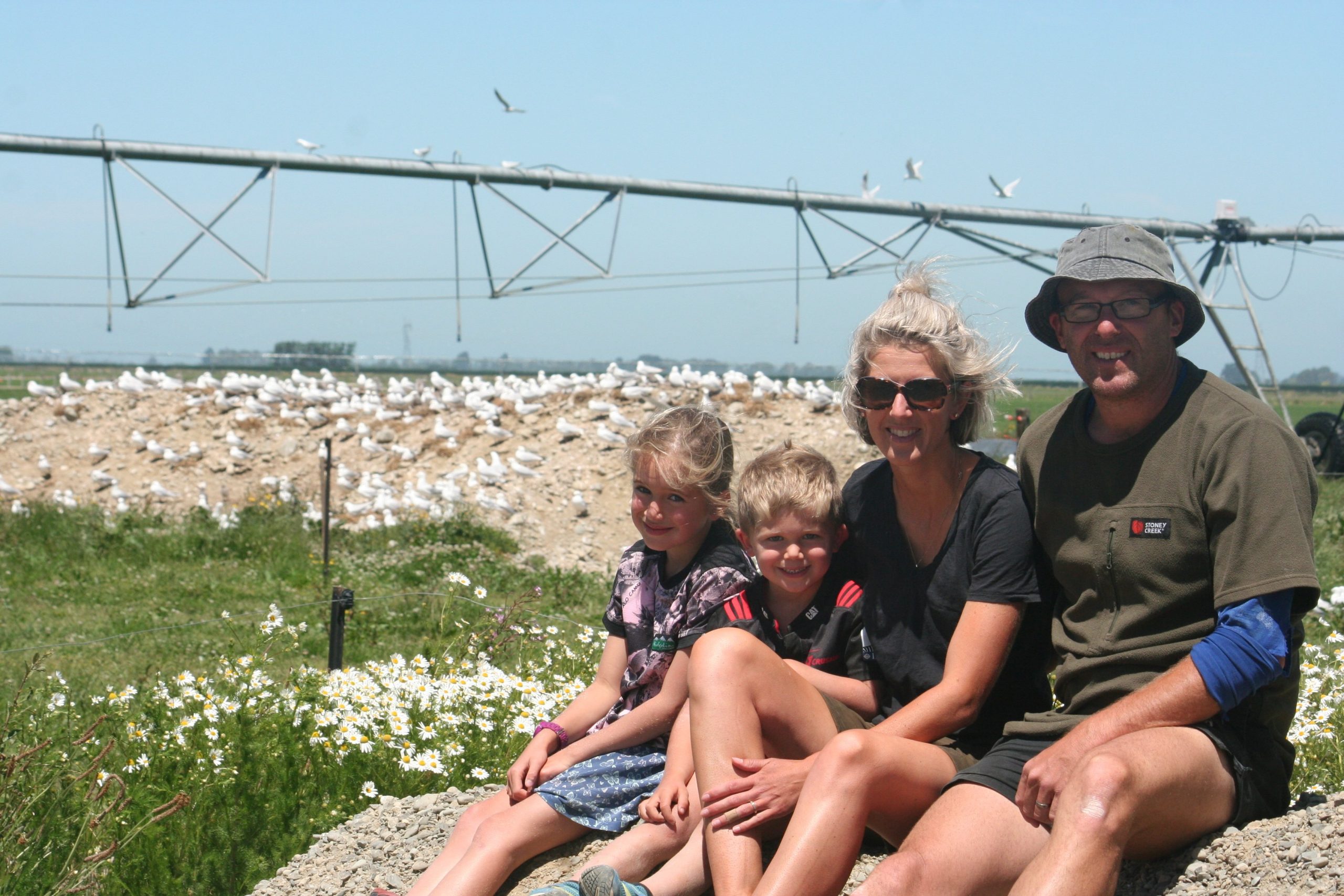
The land-locked site is nowhere near the Ashburton River and its risky riverbed, where flooding, human or canine activity disrupts nests.
However the birds are happy tucked in between an effluent pond and the dairy shed.
Sharemilkers Ali Van Polanen and Andrew Black said the birds were first noticed on November 14.
They were weaning calves when they noticed the first group, Ali said.
But within a few days there were more.
They have taken to an old gravel pile and some scrappy grass. There are shallow pools the birds are thriving in.
‘‘It’s what they like,’’ Ali said.
The couple milk 740 cows so have fenced off the area to cattle.
Ali said the main nesting area had the birds in various ages.
‘‘We have a lot of tarapuka nesting here at the moment and chicks at different stages of growth,’’ she said.
However there were juvenile birds in clusters off to the side of the main breeding site.
It was like a singles’ area.
Forest and Bird’s Edith Smith predicted there were between 1500 to 2000 of the protected birds on site.
She had given the couple practical advice to farm alongside the nesting birds and an Environment Canterbury ornithologist had said, based on previous experience from nesting sites in North Canterbury, the pivot irrigator could be used as normal over the site.
The couple, along with children Florence, 7, and Hudson, 4, were enjoying the birds being there.
Ali had taken to inspecting their activities and keeping an eye on growing chicks through binoculars.
They had also tried to make the area predator-free; with hedgehogs, rats and wild cats the most common pests spotted to date.
The familiar screech of the birds actually intensifies at night, they said.
But it did not bother the residents on the farm property.
It sounds like you are at the beach, Andrew said.
The birds were likely to remain on their new site until at least February.
And already the family was considering how to improve the area to welcome them back next year.














